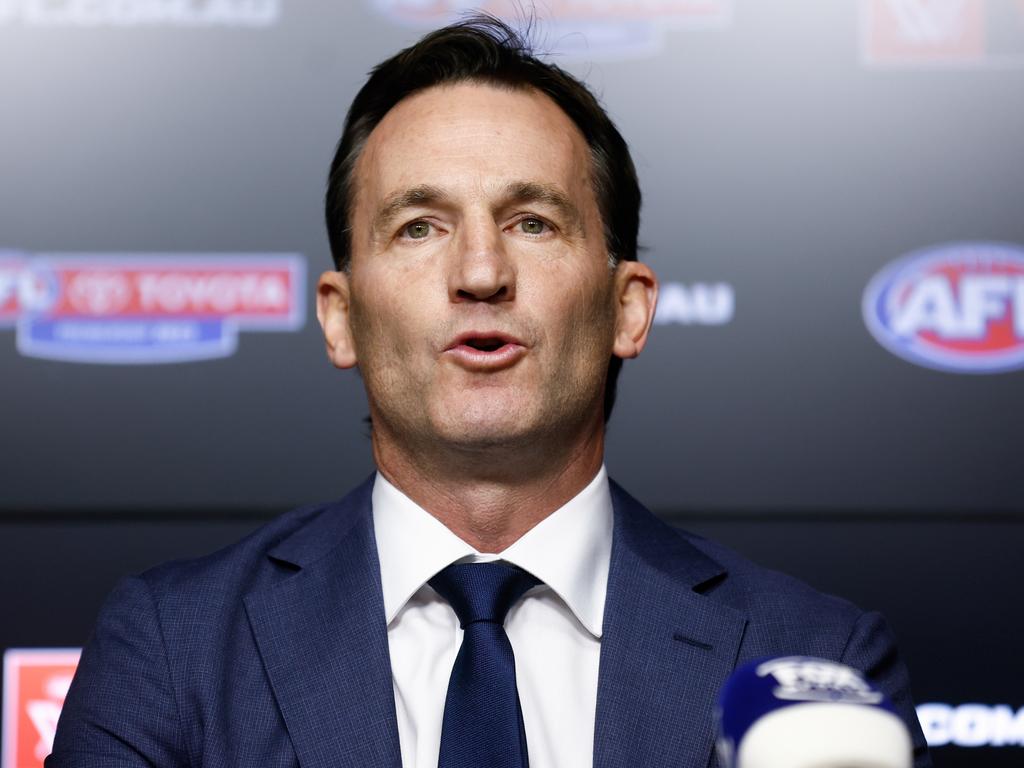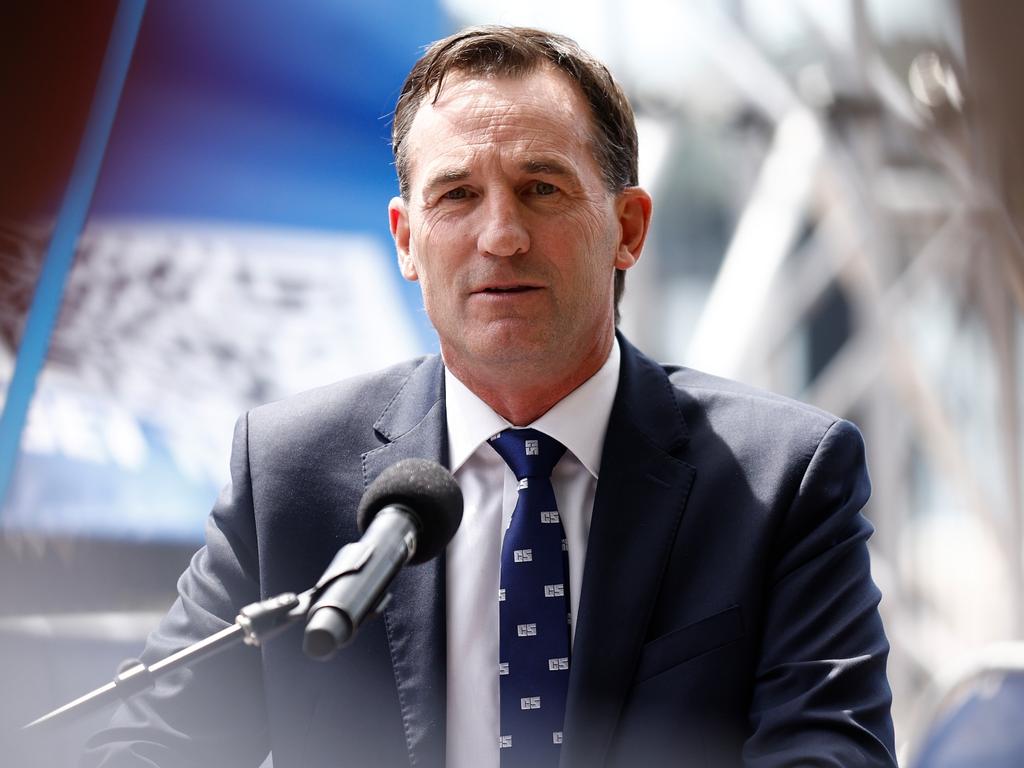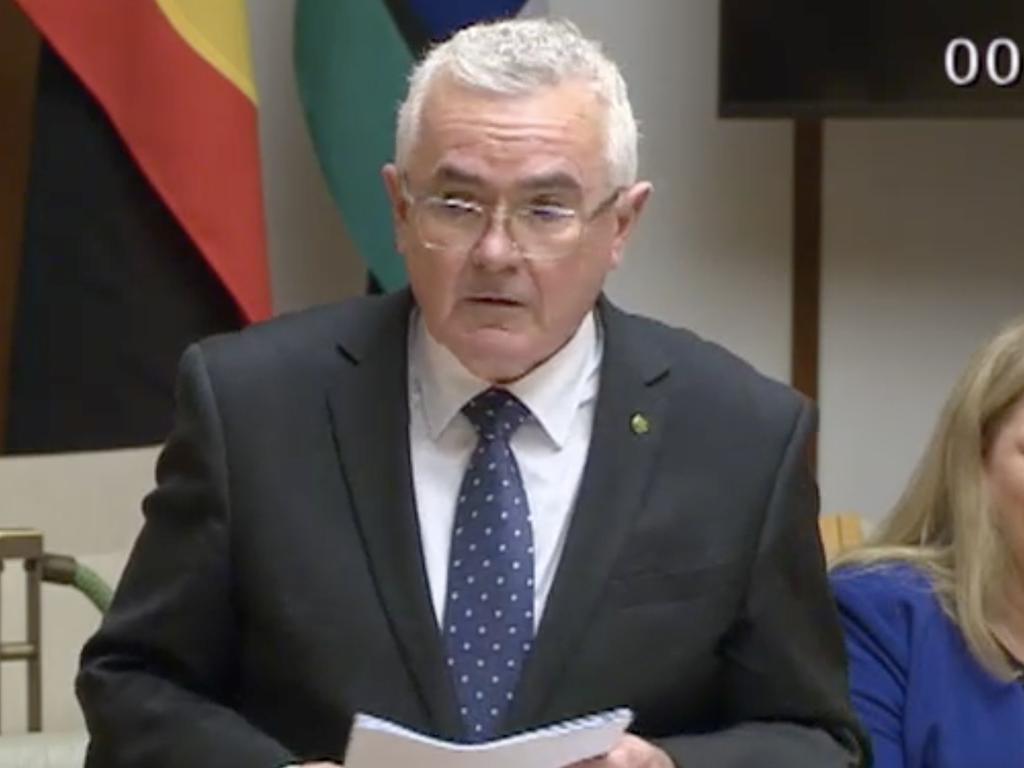Robbo: Why AFL’s ‘nothing to see here’ mantra is tough to swallow for fans, players
Other than deceiving the public, the clubs, the coaches and the large contingent of the playing cohort, there is nothing to see here, writes MARK ROBINSON of the AFL’s drug testing bombshell.

You’ve got to quietly admire the AFL.
For years, it cloaked the drugs issue in darkness and when the off-the-books drugs tests were exposed on Tuesday night, it claimed there was nothing to see here.
That’s not quite right. Players missed games of football because AFL-sanctioned drug tests given by club doctors were positive and the player was then listed as injured.
Yes, other than deceiving the public, the clubs, the coaches and the large contingent of the playing cohort, there is nothing to see here.
It’s all based on lies.
In plain terms, if a coach asks the doctor or the player what the injury is, he is lied to.
More broadly, if a player is traded to a club, the new club is not informed if the player has a drug strike, or a drugs problem, or has previously missed a game of football because of “injury” when, in fact, it was due to a positive drugs result.
And the AFL knows all this – and not the club.

The league stressed on Wednesday that off-the-books testing was in line with policy – its policy – because the welfare and wellbeing of players was paramount.
It’s a delicate matter because the AFL’s reasoning that it ‘‘seeks to reduce substance use and drug-related harms for AFL players and aims to inform and rehabilitate players through education and intervention’’ is sound.
The policy is not about ‘’gotchya’’, it’s about “helpya’’, which is the opposite strategy of the World Anti-Doping Agency.
In that regard, there has to be a level of protection for doctor-patient confidentiality.
But how much protection?
It’s a question that might confuse fans. The AFL says it has to be absolute. Put it this way, would you like your medical history shared to people? Of course the answer is no.
Still, it doesn’t make the policy perfect.
Since the voluntary illicit drugs policy was introduced in 2005 – and the three-strikes policy was struck, and the mental health loophole exposed, and all drugs tests results were not released, and statutory declarations were signed so summer hair testing results were kept mum – the drugs issue in the AFL has been lost down a multitude of rabbit holes.
Now, add off-the-books drug testing to the clandestine approach by the AFL.
We are asked to believe so much.
That there’s not a drug culture in the game.
That only a “handful’’ of players have missed games with “injury’’ and that players’ lives and careers have been saved because of the AFL’s policy.

Fans will query everything now, not least when the next player is managed or is a late out.
The mental health card has clouded everything.
Clearly players have serious issues, but also it’s clear that players have used mental health to cover-up their choice to take drugs. That’s not a footy issue; it happens in all walks of life.
Yet, it’s those footy impostors who expose the AFL’s “welfare and wellbeing’’ position.
And there’s enough anecdotal evidence to suggest that it happens more than what the AFL would care to admit.
The secret drugs testing, which was revealed in parliament on Tuesday night, doesn’t pass the pub test. That’s despite the AFL being “unapologetic about club and AFL doctors taking the correct steps to ensure that any player who they believe has an illicit substance in their system does not take part in any AFL match and that doctor patient confidentiality is upheld and respected’’.
Fans hate it when they feel the game they love has been compromised by matters such as betting on matches or drug-taking. And now a drugs cover-up.
Their reaction can’t be ignored by the AFL.
Neither can the clubs. Eddie McGuire and Jeff Kennett were furious in their belief that AFL presidents should be told of drugs indiscretions, mainly because they felt the clubs could offer great resources to the player.
It’s sure to be put back on the agenda by current presidents as the AFL reviews its drugs policy.
Ironically, Tuesday night’s bombshell wouldn’t have dropped if former Melbourne president Glen Bartlett and former doctor Zeeshan Arain were not run out of the club in 2021.
A headache that Melbourne and the AFL hoped would die on the vine has formed into a raging migraine. Don’t be surprised when more bombshells are dropped.
More Coverage
Originally published as Robbo: Why AFL’s ‘nothing to see here’ mantra is tough to swallow for fans, players




